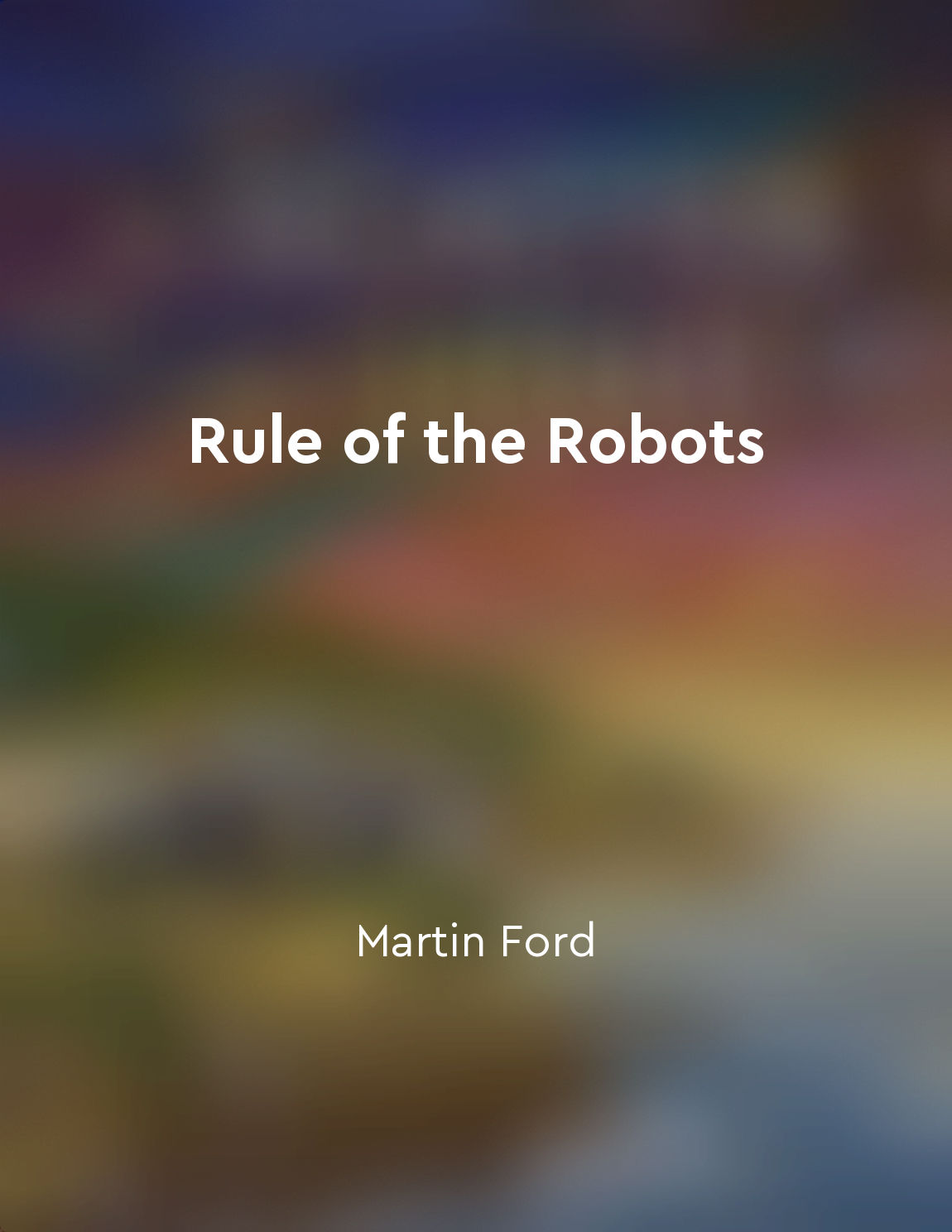The skills that are most valued in the workforce are changing from "summary" of Rule of the Robots by Martin Ford
In today's rapidly evolving economy, the skills that are most valued in the workforce are undergoing a profound transformation. Traditional jobs that once provided stable employment are being automated or outsourced, leaving many workers struggling to adapt to this new reality. The rise of artificial intelligence and advanced robotics is reshaping the nature of work, creating a demand for skills that are complementary to technology rather than easily replaceable by it.
Employers are increasingly seeking workers who possess a diverse set of skills, including critical thinking, creativity, emotional intelligence, and adaptability. These skills are essential for navigating an uncertain and rapidly changing job market, where the ability to learn new technologies and adapt to new roles quickly is paramount. In this new paradigm, workers must be willing to continually upskill and reskill to stay competitive in the workforce.
The traditional emphasis on technical skills alone is no longer sufficient in today's digital economy. While technical skills remain important, they are now just one piece of the puzzle. Employers are looking for workers who can think critically, solve complex problems, communicate effectively, and collaborate with others across different disciplines. These so-called "soft skills" are becoming increasingly valuable in a world where automation is automating routine tasks, leaving humans to focus on higher-order thinking and creativity.
At the same time, the nature of work itself is changing. The gig economy, remote work, and flexible schedules are becoming more common, requiring workers to be self-motivated, independent, and able to manage their time effectively. The ability to work autonomously and independently is now a highly sought-after skill in many industries, as companies seek to streamline operations and cut costs.The skills that are most valued in the workforce are no longer the same as they once were. Workers must adapt to this new reality by developing a diverse set of skills that are complementary to technology and essential for success in today's rapidly changing job market. By embracing lifelong learning, upskilling, and reskilling, workers can position themselves for success in an economy that is increasingly driven by automation and artificial intelligence.

Open in app
The road to your goals is in your pocket! Download the Oter App to continue reading your Microbooks from anywhere, anytime.


